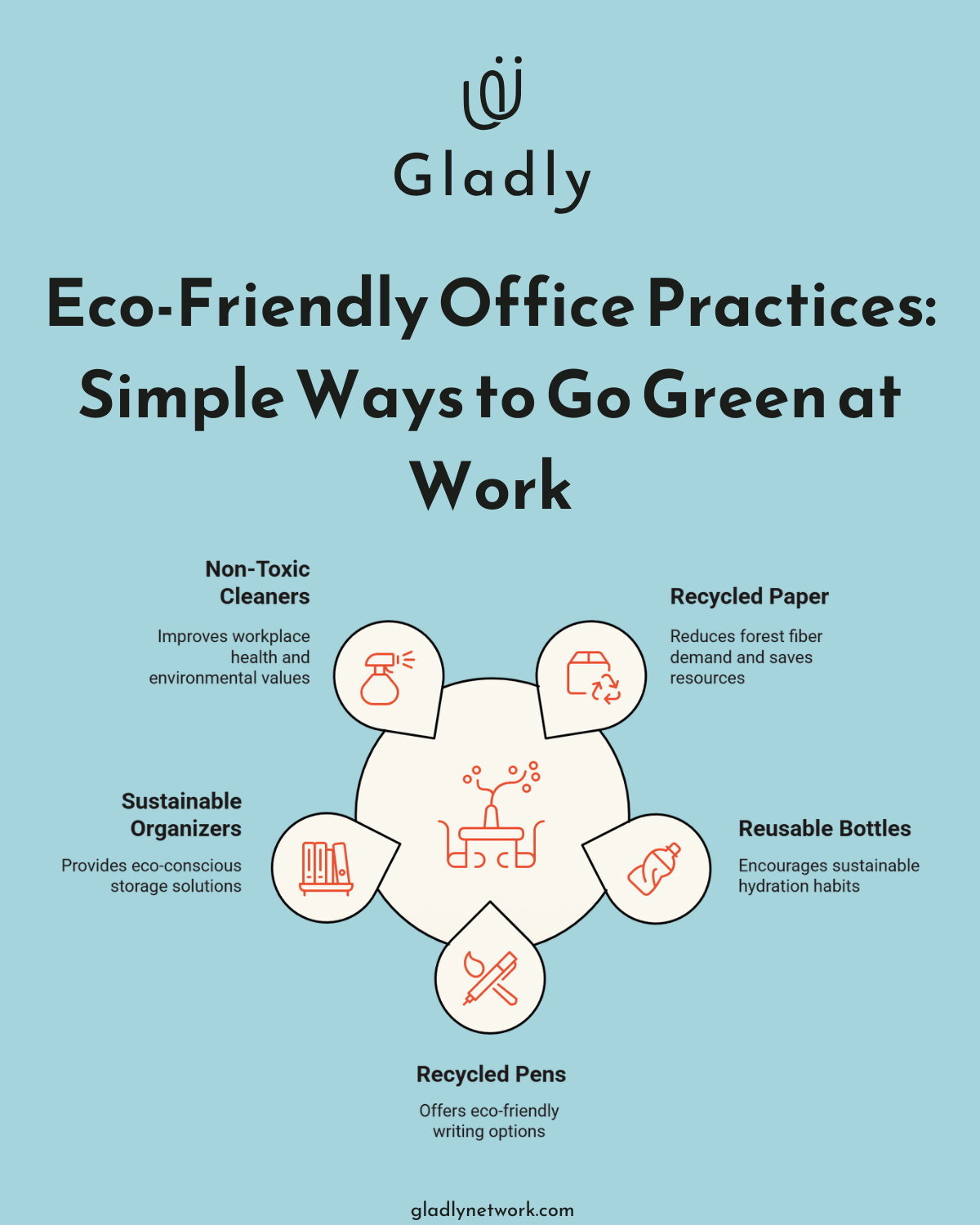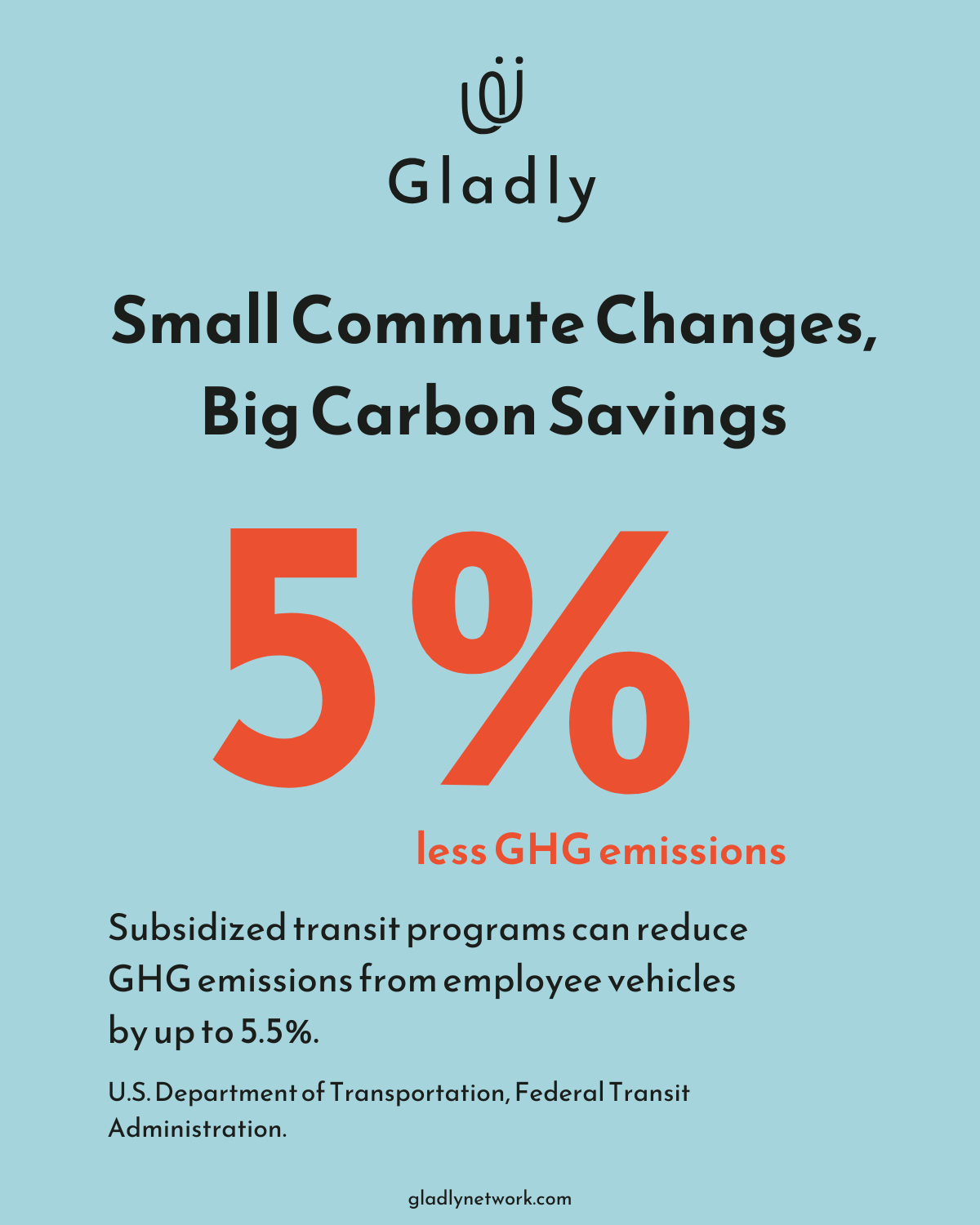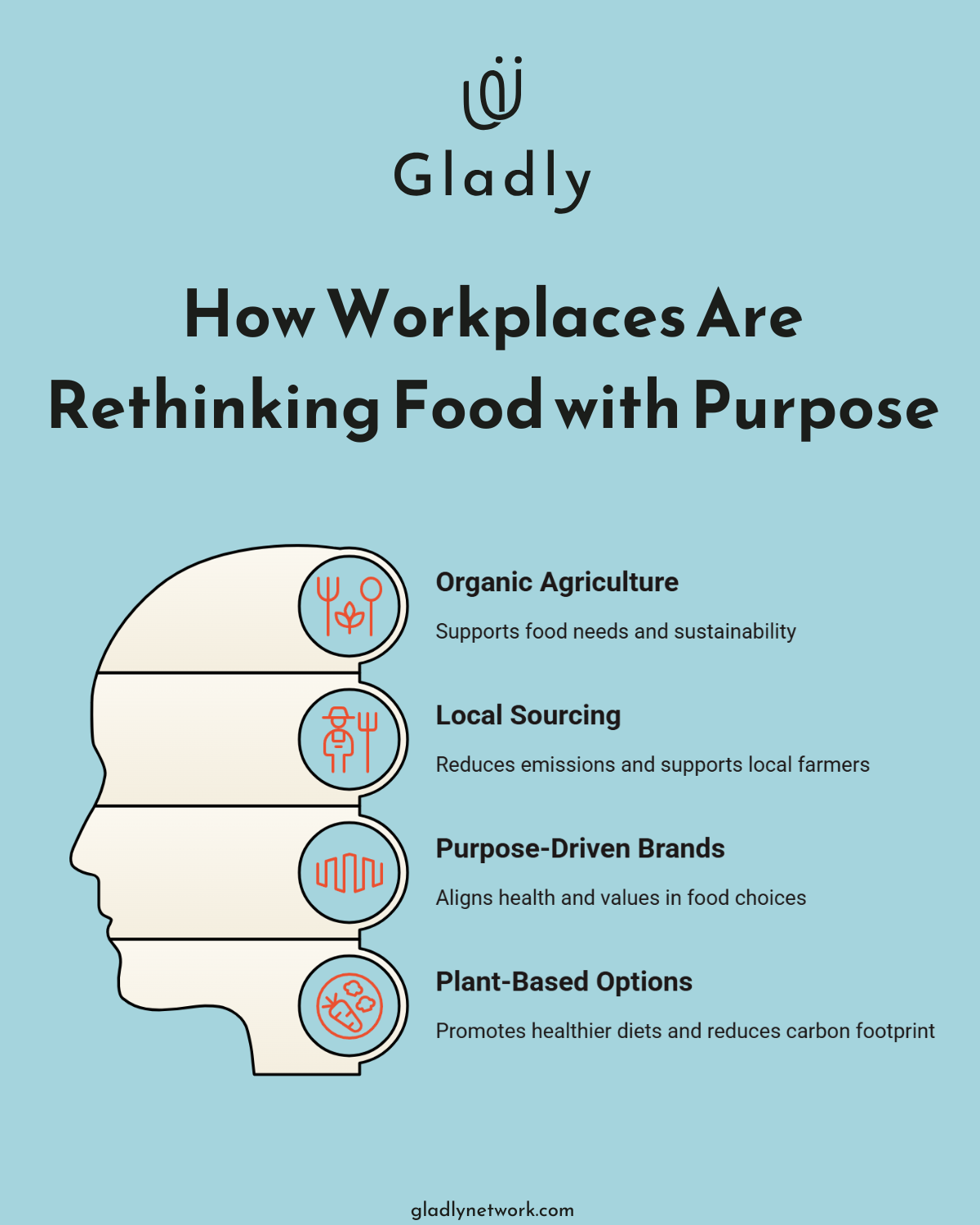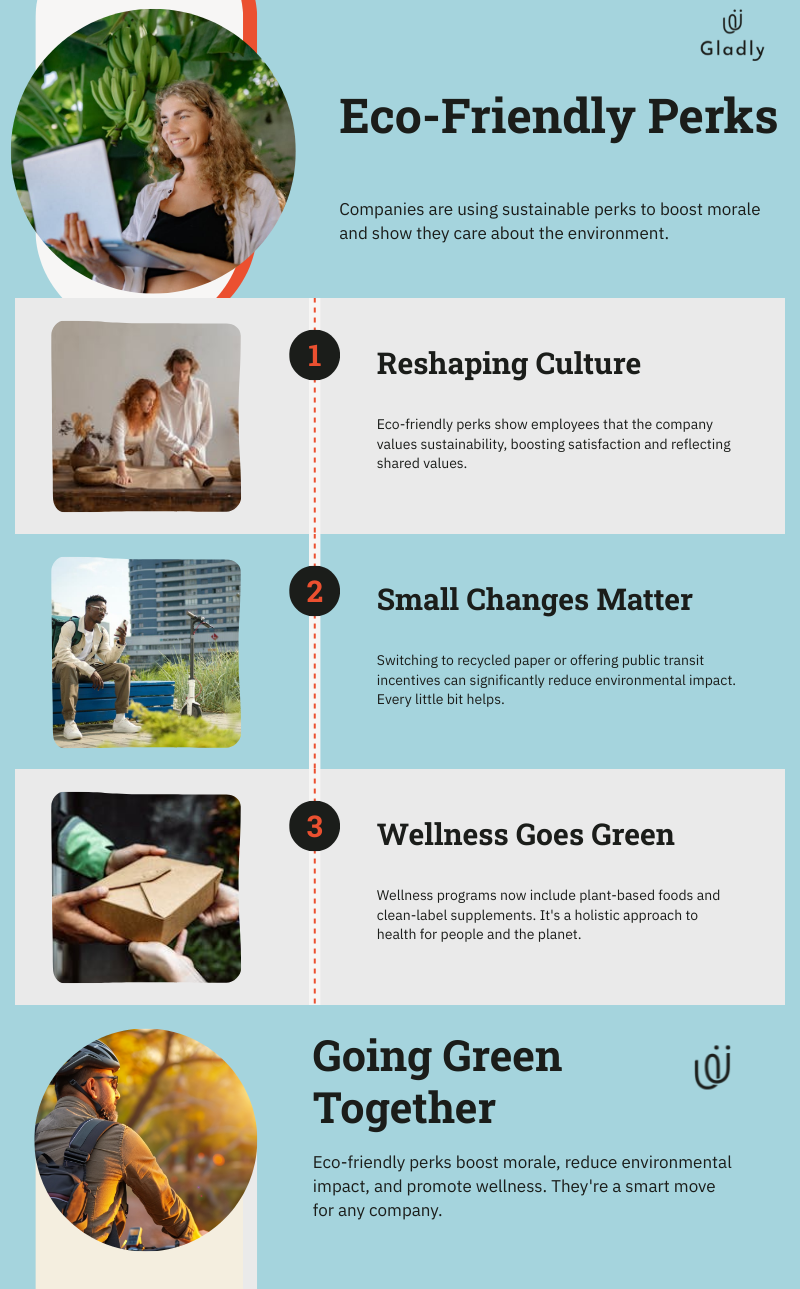Eco-friendly benefits are becoming a popular way for companies to enhance employee perks. At Gladly Network, we’ve seen more organizations embrace sustainable goods that boost morale and reflect shared environmental values.
In this post, we’ll explore different eco-conscious products that businesses can add to their benefits programs. From green office supplies to wellness perks with purpose, these ideas can help create a healthier and more responsible workplace.
Greening Your Workspace: Eco-Friendly Office Supplies
At Gladly Network, we’ve observed a significant increase in companies adopting eco-friendly office supplies as part of their employee perks. This shift represents a practical approach to reducing environmental impact while enhancing employee satisfaction.
The Paper Trail
Let’s start with the basics: paper products. The switch to recycled paper for printing, notepads, and notebooks is a smart move. Recycled paper reduces the demand for forest fibers and provides significant savings in energy, water, and chemical use, plus reduces climate impact. Many office supply retailers now offer a wide range of recycled paper products, making it easy to stock up on sustainable alternatives.
Sip Sustainably
Disposable cups are becoming a thing of the past, with reusable bottles and mugs taking center stage. Companies should consider providing employees with high-quality, branded reusable bottles and mugs. This approach not only promotes eco-friendliness but also boosts company pride.
Write Green
Writing instruments are also getting an eco-makeover. Pens made from recycled plastic or biodegradable materials (like cornstarch) are now widely available. Some brands use recycled plastic bottles to create pens that perform just as well as their non-eco counterparts. Pencil users can opt for options made from sustainably harvested wood or even recycled newspaper.
Organizing Sustainably
Desk organizers and accessories can also receive the green treatment. Products made from recycled materials or sustainable sources (such as bamboo) are excellent choices. Some companies offer file folders and binders made from 100% recycled materials without added chemicals or plastics. These products reduce waste and add a natural, stylish touch to the office environment.
The transition to eco-friendly office supplies doesn’t have to happen overnight. Companies can start small, perhaps with one category of supplies, and gradually expand their green offerings. The key is to make sustainable choices easily accessible to employees, encouraging them to participate in the company’s environmental initiatives right from their desks.

Clean Without Harming
Many companies are now rethinking how they clean their spaces too. Traditional cleaning products often contain harsh chemicals that contribute to indoor air pollution and irritate sensitive skin. Making the switch to safer, non-toxic alternatives can improve workplace health while reinforcing a company’s environmental values.
The Hypochlorous Company offers a USDA-certified disinfectant made from naturally occurring hypochlorous acid, a gentle yet powerful way to sanitize shared spaces. With a proprietary process that extends shelf life and increases effectiveness, their products make it easier to clean with confidence. Their mission also extends beyond the office, with donations supporting clean water access in vulnerable communities.
As we move forward, let’s explore how companies can extend their commitment to sustainability beyond the office, starting with green transportation incentives.
Revolutionizing Employee Commutes: Green Transportation Incentives
At Gladly Network, we observe how green transportation incentives transform daily commutes and boost employee satisfaction. Companies increasingly recognize the importance of sustainable travel options, not just for the environment, but for employee well-being and productivity.
Pedal Power at Work
Bicycle-friendly workplace initiatives gain traction. Companies install secure bike storage, showers, and changing facilities to encourage cycling. Some offer bike maintenance workshops or partner with local bike shops for employee discounts. Google provides a fleet of colorful bikes for employees to use on their sprawling campus.
Riding the Public Transit Wave
Public transit subsidies benefit employees and employers. Companies can reduce their carbon footprint while easing the financial burden on staff by covering part or all of the cost of bus or train passes. A subsidized or discounted transit program can reduce GHG emissions from employee/resident vehicles accessing the site by up to 5.5%.

Charging Ahead with EVs
Electric vehicle (EV) charging stations have become a must-have perk for forward-thinking companies. Installing charging points in company parking lots encourages EV adoption among employees. Facebook (now Meta) sets an impressive benchmark by providing over 1,500 charging stations across its facilities worldwide.
Carpooling for Community
Carpool matching programs effectively reduce single-occupancy vehicle trips. Companies use internal platforms or partner with apps like Waze Carpool to help employees find ride-sharing partners. Intuit reported a 24% reduction in solo driving after implementing such a program.
The key to successful green transportation initiatives is flexibility. A variety of options ensures that employees can choose the method that works best for them. Some companies experiment with “commuter credits” – a flexible spending account that can be used for any eco-friendly transportation method.
Companies that invest in sustainable transportation invest in their employees’ quality of life. This investment leads to a more connected, healthier workforce. As we move forward, let’s explore how businesses can extend their commitment to sustainability beyond transportation and into the realm of employee wellness.
Wellness Perks That Nurture People and Planet
More and more companies are offering sustainable wellness benefits. These perks not only improve employee health and align with environmental values, but also reflect a broader shift toward responsible consumption in the workplace, as an extension of what we believe and stand for. At Gladly, we offer curated discounts on purpose-driven brands, helping organizations provide benefits that support personal well-being while contributing to a positive impact beyond the office.
Nourishing Bodies, Supporting Local Farms
Many companies now stock their break rooms with organic, locally-sourced snacks and beverages. This shift supports local farmers and reduces transportation emissions. Organic agriculture can support global and domestic food needs, expand consumer food choices, enhance farm profitability, and increase environmental sustainability.
One example of this shift can be seen in the growing popularity of purpose-driven snack brands. Aloha, an employee-owned company and Certified B Corp, embraces the philosophy of “Nourishing Bodies, Supporting Local Farms.” Their commitment to clean, plant-based ingredients and intentional sourcing makes them a natural fit for workplaces that want their breakroom offerings to reflect both health and values.
Company cafeterias embrace plant-based options. Google’s cafeterias now offer Meatless Mondays, reducing their carbon footprint while promoting healthier eating habits. A study by the World Resources Institute indicates that slowing demand growth requires reducing food loss and waste, shifting the diets of high meat consumers toward plant-based foods, and avoiding any further expansion.

Sustainable Sweat Sessions
Fitness perks receive an eco-makeover too. Some companies provide eco-friendly gym equipment made from sustainable materials. Others offer discounts on eco-conscious fitness apparel brands (like Patagonia or Prana).
The clean-fuel mindset is showing up in supplements too. Some companies are rethinking what they stock in employee wellness packages or gym spaces, turning to brands with transparent ingredients and values. NiTOR, a veteran-owned company committed to high-performance nutrition and clean labeling, offers protein products that align with both fitness goals and a wider mission, donating to anti-trafficking efforts and exploring ways to fight global hunger through innovation.
Outdoor fitness classes gain popularity, reducing energy consumption associated with indoor gyms. REI encourages employees to participate in outdoor activities during work hours, promoting both physical health and environmental appreciation.
Eco-Conscious Relaxation
Green spa treatments emerge as a unique wellness perk. These treatments use organic, locally-sourced products and focus on sustainable practices. The Umstead Hotel and Spa in North Carolina offers treatments using herbs from their on-site organic garden.

Some companies take it a step further by offering “forest bathing” sessions – a Japanese practice of spending mindful time in nature. This promotes employee well-being and fosters a deeper connection with the environment.
Companies can start small by introducing organic snacks or partnering with local wellness providers who prioritize sustainability. The key is to align these perks with the company’s overall sustainability goals and employee preferences.
Bringing It All Together
The shift toward eco-friendly perks isn’t just a trend. It reflects how companies are rethinking what care looks like in the workplace. Whether it’s a reusable bottle, a plant-based snack, or support for low-impact commutes, each choice tells employees: we see you, and we care.
You don’t need to launch a full sustainability program overnight. Start with one thoughtful change and build from there. What matters most is clarity, consistency, and follow-through.
At Gladly, we help make that easier. Our platform connects companies with purpose-driven brands and exclusive employee discounts that support both people and the planet. Signing up is free, and every perk is an opportunity to reflect your company’s values in a real, tangible way.











